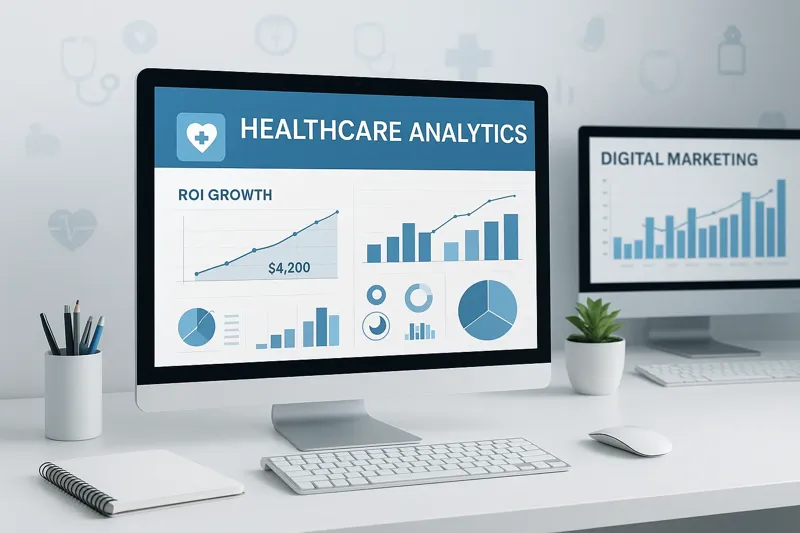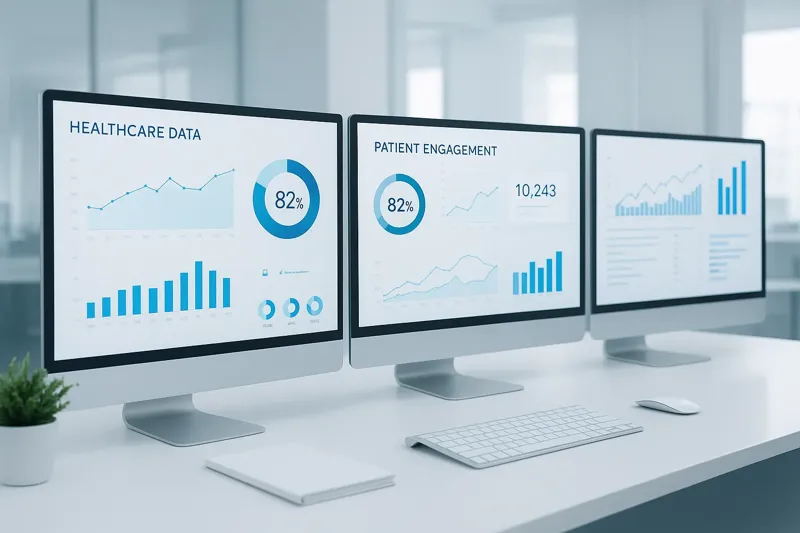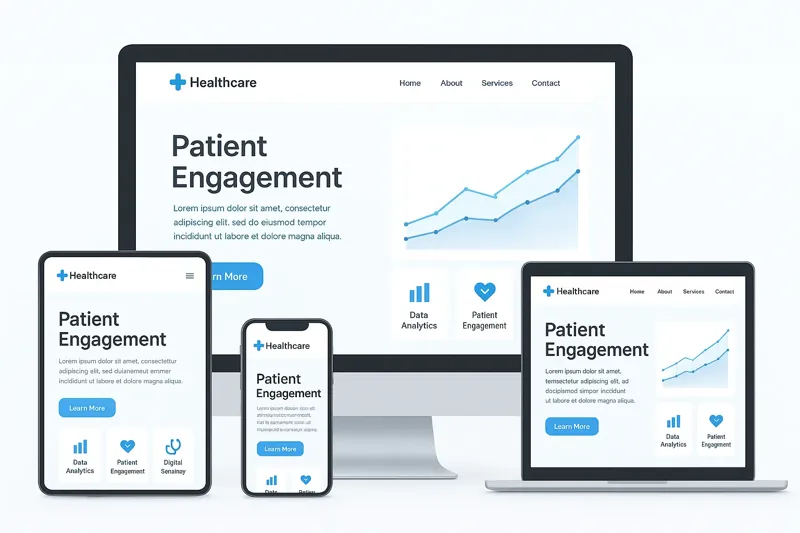Understanding the Crucial Role of Online Reputation in Healthcare
In today's digital age, the online reputation of healthcare and dental practices plays a pivotal role in patient acquisition, trust-building, and sustained growth. With the majority of prospective patients relying on online reviews, ratings, and social media presence to make informed healthcare decisions, a well-managed online reputation has become indispensable. This article explores comprehensive strategies for protecting and enhancing your practice’s online image while navigating the complexities of legal considerations, patient privacy, and technological tools.
Why Online Reputation Matters for Healthcare Practices

Importance of online reputation for patient trust and decision-making
In today’s digital age, a healthcare practice’s online reputation is a crucial factor in establishing trust with current and prospective patients. Approximately 84% of patients rely on online reviews to evaluate providers before making decisions. Positive reviews and high star ratings create a sense of credibility, helping patients feel confident in their choice. Additionally, a well-managed online image reassures patients about the quality of care they can expect. Learn more about the importance of online reviews and patients trust online reviews in healthcare.
Impact on practice growth and patient loyalty
A strong online reputation directly correlates with practice growth and patient retention. Satisfied patients often share their positive experiences through reviews, which serve as social proof to new patients. This influx of new patients, driven by good reviews and search rankings, can lead to increased revenue and community presence. Conversely, negative reviews can deter future patients, emphasizing the need for diligent reputation management. Responding promptly and professionally to feedback demonstrates care and dedication, fostering loyalty and encouraging word-of-mouth referrals. For best practices on responding to patient reviews and handling negative reviews professionally, see additional resources.
Influence of online reviews and search engine rankings
Search engines like Google consider the quantity, recency, and quality of reviews when determining local search rankings. Practices with abundant, positive feedback tend to appear higher in local search results, increasing visibility. Platforms such as Google, Yelp, Healthgrades, and Zocdoc are popular review sites where most patients assess providers. Maintaining consistent, accurate online profiles and actively encouraging patients to share honest reviews can significantly improve search rankings. As a result, healthcare practices that prioritize their online reputation effectively attract more patients, enhance their credibility, and solidify their position in the community in an increasingly competitive landscape. Explore more about monitoring review sites, soliciting honest patient reviews, and impact of online reviews on healthcare.
Proactive Recognition and Management of Reputation Issues

How can healthcare practices recognize and address reputation issues proactively?
Healthcare practices can take a strategic and proactive approach to their online reputation by implementing tools that provide real-time patient feedback. These tools, such as automated survey platforms and review request systems, enable practices to identify emerging concerns or dissatisfied patient experiences early, allowing for timely interventions that prevent minor issues from escalating (Healthcare Reputation Management, Healthcare Reputation Management Strategies).
Encouraging authentic reviews from satisfied patients is another effective strategy. Practices can gently remind patients to share their positive experiences through follow-up emails, SMS messages, or handouts, making it easy and convenient to leave reviews on platforms like Google or Yelp (How to get more online reviews, Encouraging Patient Reviews).
Sharing anonymized success stories and satisfied patient feedback on websites or social media can organically boost reputation and demonstrate value to prospective patients (Building Positive Online Reputation, Engaging Patients Through Blogs). Responsiveness plays a critical role as well—responding promptly, empathetically, and professionally to all reviews, whether positive or negative, shows commitment to patient care and builds trust (Responding to Patient Reviews, HIPAA Compliance in Responses).
Developing a comprehensive reputation management plan involves staff training on privacy laws like HIPAA, regular monitoring across review sites, social media, and search engines, and employing technology solutions for review tracking and sentiment analysis (SocMed Reputation Management, Monitoring Online Presence, Reputation Management Solution). Transparency and consistency in responses reinforce organizational credibility (Best Practices for Review Responses).
Additionally, cultivating a patient-centered culture through community outreach, high-quality care, and honest communication helps align online perceptions with true patient experiences. Ensuring compliance with legal and ethical standards throughout all interactions safeguards and enhances the practice’s reputation over time (Protect Your Practice's Reputation, HIPAA Compliance and Ethical Management).
Effective Strategies and Best Practices for Handling Online Reviews

What strategies and best practices can healthcare providers use to handle online reviews effectively?
Healthcare providers can adopt several proven strategies to manage their online reputation successfully. The first step involves responding promptly and professionally to every review, whether positive or negative. Responses should always be courteous, empathetic, and, most importantly, adhere to HIPAA guidelines by avoiding the disclosure of any protected health information (PHI). For example, general acknowledgments or thank-yous are appropriate for positive reviews, while negative feedback should be addressed with a thoughtful, non-specific response that suggests offline discussion.
Encouraging satisfied patients to leave reviews is critical. Practices can make this process simple by sending automated reminders via email or SMS shortly after appointments, using QR codes in the office, or providing handouts that guide patients on how to review their experience. These easy-to-use methods increase review volume organically, which improves SEO and builds trust.
Optimizing profiles on review platforms like Google My Business, Yelp, Healthgrades, and Zocdoc is another essential practice. Maintaining consistent and accurate business information, adding high-quality images, and updating services help boost visibility and credibility. Claiming and regularly updating these profiles prevent outdated or incorrect information that could mislead patients.
Furthermore, analyzing review trends provides valuable insights into patient satisfaction and service quality. Negative reviews may highlight areas needing improvement, while positive feedback helps reinforce strengths. Using reputation management tools with sentiment analysis and review tracking features simplifies this process.
Delivering excellent patient experiences offline—such as effective communication, respectful treatment, and efficient workflows—also encourages positive reviews. Engaging transparently with patients and responding professionally demonstrates care, fosters trust, and attracts new patients. By combining these strategies—timely responses, easy review requests, profile optimization, and ongoing service improvement—healthcare providers can strengthen their online reputation, attract more patients, and enhance overall practice quality.
Legal Considerations When Responding to Patient Reviews

What legal considerations and regulations should healthcare professionals be aware of when responding to patient reviews?
Healthcare professionals need to be acutely aware of legal regulations such as the Health Insurance Portability and Accountability Act (HIPAA) when engaging with online patient reviews. HIPAA strictly prohibits the disclosure of protected health information (PHI), which includes any details that can identify a patient or reveal their medical conditions. This means that responses to reviews should never confirm, deny, or otherwise disclose specific patient information.
Even if a patient shares their own medical details in a review, clinicians should refrain from responding with information that could identify the patient or discuss treatment specifics. Such disclosures can lead to serious consequences, including regulatory investigations, fines, and damage to the practice’s reputation. Learn more about avoiding HIPAA violations in reviews.
To mitigate legal risks, healthcare providers are encouraged to craft responses that are vague and general. This might include thanking the reviewer for their feedback, emphasizing the practice’s commitment to quality care, or inviting the reviewer to discuss concerns privately. Handling detailed discussions offline or through secure, private communication channels helps ensure compliance and maintains patient confidentiality. See best practices for review responses.
Furthermore, staff involved in online communications should receive proper training on privacy laws and review response protocols. Legal counsel can offer guidance tailored to specific practice settings to prevent inadvertent violations. Overall, the priority is to protect your practice's reputation while managing online reputation responsibly, avoiding defensive or overly specific comments that could expose sensitive information. Additional guidance on HIPAA compliance in reviews and responding to patient reviews can also be consulted.
Monitoring and Tracking Online Reputation Efficiently
Healthcare providers need effective strategies to monitor and manage their online reputation and patient reviews. One of the most efficient methods involves utilizing specialized reputation management platforms such as Emitrr, BirdEye, or Podium. These tools consolidate reviews, comments, and star ratings from multiple platforms like Google, Yelp, Healthgrades, and Zocdoc into a single dashboard. This centralization allows practices to automate review requests, track sentiment, and respond promptly to patient feedback, thereby maintaining a positive online presence.
Setting up alerts and engaging in real-time monitoring are crucial. Providers can establish Google Alerts for their practice or physician names, enabling immediate notifications whenever new content appears online. Timely responses to reviews, especially negative ones, demonstrate attentiveness and a proactive approach to patient care. Regular audits of their online profiles — including social media activity, practice websites, and directory listings — help identify outdated information, negative feedback, or potential misinformation (importance of online reviews).
Analyzing social media channels, review site feedback, and search engine rankings offers insights into public perception. Tracking key performance metrics such as review volume, sentiment trends, and search rankings aids in identifying strengths and areas needing improvement. Incorporating these analytics into strategic planning can improve patient engagement and satisfaction (improve healthcare reputation management).
Allocating dedicated staff or resources is essential for ongoing reputation management. Many healthcare providers appoint team members responsible for overseeing reviews, responding to patient feedback, and updating online profiles. Training staff on best practices for online communication and privacy laws like HIPAA ensures responses are professional, compliant, and productive.
More about the tools and strategies available can be explored by searching for "Best tools for healthcare reputation monitoring." Employing a combination of advanced technology, proactive vigilance, and dedicated personnel ensures that healthcare providers can effectively manage their online reputation, ultimately building trust and attracting more patients.
Techniques for Increasing Positive Reviews and Online Visibility
Healthcare practices have several effective strategies to boost positive online reviews and enhance their digital presence. A proactive approach involves encouraging satisfied patients to share their experiences across multiple channels. For example, in-office signage with QR codes can conveniently direct patients to review platforms. Digital outreach methods such as email campaigns and social media posts also serve as excellent tools to solicit feedback.
Simplifying the review process is crucial. Integrating review requests into routine patient communications, follow-up surveys, or digital forms makes it easier for patients to leave feedback without hassle. When the process is straightforward, patients are more likely to share their positive experiences (Importance of online reviews).
Maintaining a comprehensive and current Google Business Profile is another vital aspect. Regularly updating details, responding to reviews, and monitoring online feedback foster trust and improve local SEO rankings. These efforts help the practice appear more prominently in search results when potential patients look for healthcare providers.
Leveraging patient testimonials on the practice’s website and marketing materials further supports online reputation. Showcasing positive reviews not only builds credibility but also influences prospective patients' decisions (Building positive online reputation). Combining these tactics creates a powerful cycle: happy patients share reviews, which attract new patients, resulting in more positive feedback (Benefits of healthcare reputation).
Responding professionally and empathetically to all reviews—whether positive or negative—also plays a role in reputation management. Timely responses demonstrate commitment to patient satisfaction and reinforce a trustworthy brand (Best practices for review responses).
In summary, systematic encouragement, ease of review submission, active profile management, and positive testimonial utilization collectively enhance a practice's online visibility and reputation. These methods support patient acquisition, retention, and long-term organizational growth (Improving healthcare reputation management).
Repairing and Protecting Online Reputation in Healthcare
What techniques can healthcare and dental practices use to repair and protect their online reputation?
Healthcare and dental practices can take several proactive steps to safeguard and improve their online reputation. One of the most effective strategies is encouraging satisfied patients to leave authentic positive reviews. This can be done through gentle reminders via email or text messages after appointments, making it easy for patients to share their experiences without offering incentives that could violate laws.
Creating high-quality, consistent online content, such as informative blog posts or patient success stories, helps shape a positive digital narrative. Regularly updating practice profiles on review and social media platforms ensures accuracy and professionalism, reinforcing trust with current and potential patients. Managing local listings and verifying key directories such as Google My Business, Yelp, and Healthgrades is essential for an accurate online presence.
Responding promptly, professionally, and with empathy to all reviews—whether positive or negative—is vital. Responses should never include Protected Health Information (PHI) to stay compliant with HIPAA regulations. Even negative reviews can be turned into opportunities for improvement if addressed thoughtfully. Following best practices for review responses and avoiding sharing patient information build trust and professionalism.
Managing online profiles also involves monitoring search engine results and social media mentions to identify issues early and respond before they escalate. Using tools for online reputation monitoring and automated review requests can streamline this process.
When facing false or defamatory reviews, practices should report these to platform administrators and, if necessary, pursue legal options while avoiding unethical practices like posting fake reviews. This honest approach builds credibility and is supported by legal considerations and ethical guidelines.
Finally, ongoing monitoring and patient engagement reinforce a positive reputation, protect the practice from misinformation, and foster long-term trust with the community.
These combined techniques help healthcare professionals maintain a reputable online presence, attract new patients, and ensure their practice’s digital reputation reflects the quality of care they provide.
Ethical and Effective Social Media Management for Healthcare
Managing social media presence and online feedback ethically and effectively is crucial for healthcare providers aiming to build trust and professionalism. First, maintaining patient confidentiality is paramount; providers must never share identifiable patient information without explicit, informed consent. This adherence ensures compliance with privacy laws such as HIPAA and protects patient trust.
Transparency is also essential. Healthcare professionals should clearly communicate the limits of social media interactions, emphasizing that posts are not a substitute for direct medical advice. By being honest about their qualifications, roles, and interests, providers foster credibility with their audience (Social Media Guide for Physicians).
Engaging respectfully involves avoiding sensational, inappropriate, or unprofessional content that could harm reputation or violate ethical standards. Comments, responses, and shared content should always be constructive, respectful, and aimed at advancing public health and trust (Handling Negative Reviews Professionally).
Education on e-professionalism helps providers navigate the digital environment wisely. Maintaining clear boundaries between personal and professional accounts, and regularly reviewing privacy settings, protects both the provider and their patients (HIPAA Compliance in Review Responses).
Additionally, staying informed about evolving regulations and institutional policies ensures compliance and reduces legal risks. Regularly updating online behaviors, practicing responsible sharing, and fostering authentic, respectful communication can significantly enhance the positive impact of social media (Managing Online Reputation for Healthcare Professionals).
In sum, ethical social media management involves a commitment to integrity, transparency, and respect. When done correctly, it can be a powerful tool for education, engagement, and strengthening the healthcare provider-patient relationship, ultimately supporting broader healthcare goals (Healthcare Reputation Management Strategies).
Leveraging Reputation Management Tools and Software in Healthcare
In the rapidly evolving healthcare landscape, managing online reputation effectively requires powerful and reliable tools. Leading platforms such as Relias, Birdeye, and ReviewTrackers are recognized for their comprehensive features tailored specifically for healthcare providers.
Relias stands out with its real-time feedback collection capabilities, enabling healthcare organizations to gather patient reviews promptly after appointments. It offers a centralized dashboard that consolidates feedback from multiple review sites, allowing providers to monitor their online ratings effortlessly. Its advanced analytics help identify trends and areas needing improvement, ensuring continuous reputation enhancement.
Birdeye utilizes AI-powered automation to streamline review monitoring and analysis. It integrates seamlessly across various platforms like Google, Healthgrades, and Facebook, providing healthcare providers with a unified view of their online sentiment. The platform also offers tools for responding to reviews quickly, filtering negative feedback, and engaging with patients proactively.
ReviewTrackers is known for its emphasis on sentiment analysis and review response management. By consolidating reviews into one easy-to-use interface, it enables healthcare organizations to respond in a timely, professional manner. Its analytics help identify patient concerns, monitor reputation health over time, and implement targeted strategies for improvement.
Integration with electronic medical records systems, such as eClinicalWorks, is crucial for automating review requests, ensuring that feedback collection is embedded within workflow processes. This automation encourages more patients to leave reviews without adding burdens on staff, while also safeguarding compliance.
HIPAA compliance across these tools is vital, as it assures that patient information remains protected during review collection and response. Most platforms incorporate secure data handling, privacy controls, and features that prevent sharing of Protected Health Information (PHI). This legal adherence is fundamental for maintaining trust and avoiding violations.
Beyond review monitoring, these software solutions offer data analytics and sentiment analysis. By evaluating patient feedback qualitatively and quantitatively, healthcare providers can understand patient satisfaction levels, identify service gaps, and implement targeted quality improvements.
Overall, leveraging advanced reputation management software allows healthcare practices to take a proactive stance in building and maintaining a positive online presence. These tools simplify the complex process of review collection, sentiment tracking, and response management, ultimately supporting better patient engagement, improved ratings, and a strengthened healthcare brand.
Building a Positive Digital Presence Beyond Reviews

Creating quality educational content and blogs
Developing informative blogs and health-related articles helps position your practice as a trusted authority. Sharing insights on common health concerns, explaining treatment options, and providing tips can engage patients and improve search engine rankings. Regular updates with fresh content keep your online profile current and trustworthy. For more on creating helpful website content and engaging healthcare followers, see resources on healthcare reputation management.
Optimizing websites and practitioner profiles
Ensure your website is professional, easy to navigate, and optimized for search engines. Include accurate contact information, detailed service descriptions, and practitioner bios with professional photos. Claim and update your profiles on review sites and directories like Google My Business, Healthgrades, and Zocdoc to enhance visibility and credibility. Learn more about claiming listings on review sites and healthcare provider profiles.
Utilizing social media for engagement and expertise demonstration
Leverage platforms like Facebook, LinkedIn, and Twitter to share health tips, practice news, and success stories. Engaging with followers through comments and Q&A sessions demonstrates your expertise and builds trust with your community. Regular interaction encourages positive online sentiment and attracts new patients. See social media guide for physicians and engaging patients through social media for best practices.
Encouraging team involvement and patient-centered culture
Foster a team that values patient-centered care and online reputation. Encourage staff to participate in sharing educational content and engaging respectfully online. Cultivating a culture that emphasizes transparency, high-quality care, and communication helps generate positive reviews and strengthens your digital presence. Explore staff training in patient communication and best practices for review responses.
Building a strong online profile requires consistent effort in content creation, profile optimization, social media engagement, and fostering a patient-focused environment, all contributing to a positive healthcare reputation.
Sustaining Your Practice’s Success Through Proactive Reputation Management
Protecting and enhancing your healthcare practice’s online reputation is a continuous and multifaceted effort that profoundly influences patient trust, growth, and competitive standing. By embracing proactive monitoring, professional responsiveness, legal compliance, and ethical practices across online reviews and social media, healthcare providers can build lasting credibility and patient loyalty. Leveraging specialized tools and fostering a patient-centered culture amplifies these efforts, creating a robust digital presence that stands resilient against reputation challenges. Ultimately, a strategic approach to online reputation management not only safeguards your brand but also enriches patient relationships and supports sustainable practice success in an increasingly digital healthcare landscape.
Understanding the Crucial Role of Online Reputation in Healthcare
In today's digital age, the online reputation of healthcare and dental practices plays a pivotal role in patient acquisition, trust-building, and sustained growth. With the majority of prospective patients relying on online reviews, ratings, and social media presence to make informed healthcare decisions, a well-managed online reputation has become indispensable. This article explores comprehensive strategies for protecting and enhancing your practice’s online image while navigating the complexities of legal considerations, patient privacy, and technological tools.
Why Online Reputation Matters for Healthcare Practices

Importance of online reputation for patient trust and decision-making
In today’s digital age, a healthcare practice’s online reputation is a crucial factor in establishing trust with current and prospective patients. Approximately 84% of patients rely on online reviews to evaluate providers before making decisions. Positive reviews and high star ratings create a sense of credibility, helping patients feel confident in their choice. Additionally, a well-managed online image reassures patients about the quality of care they can expect. Learn more about the importance of online reviews and patients trust online reviews in healthcare.
Impact on practice growth and patient loyalty
A strong online reputation directly correlates with practice growth and patient retention. Satisfied patients often share their positive experiences through reviews, which serve as social proof to new patients. This influx of new patients, driven by good reviews and search rankings, can lead to increased revenue and community presence. Conversely, negative reviews can deter future patients, emphasizing the need for diligent reputation management. Responding promptly and professionally to feedback demonstrates care and dedication, fostering loyalty and encouraging word-of-mouth referrals. For best practices on responding to patient reviews and handling negative reviews professionally, see additional resources.
Influence of online reviews and search engine rankings
Search engines like Google consider the quantity, recency, and quality of reviews when determining local search rankings. Practices with abundant, positive feedback tend to appear higher in local search results, increasing visibility. Platforms such as Google, Yelp, Healthgrades, and Zocdoc are popular review sites where most patients assess providers. Maintaining consistent, accurate online profiles and actively encouraging patients to share honest reviews can significantly improve search rankings. As a result, healthcare practices that prioritize their online reputation effectively attract more patients, enhance their credibility, and solidify their position in the community in an increasingly competitive landscape. Explore more about monitoring review sites, soliciting honest patient reviews, and impact of online reviews on healthcare.
Proactive Recognition and Management of Reputation Issues

How can healthcare practices recognize and address reputation issues proactively?
Healthcare practices can take a strategic and proactive approach to their online reputation by implementing tools that provide real-time patient feedback. These tools, such as automated survey platforms and review request systems, enable practices to identify emerging concerns or dissatisfied patient experiences early, allowing for timely interventions that prevent minor issues from escalating (Healthcare Reputation Management, Healthcare Reputation Management Strategies).
Encouraging authentic reviews from satisfied patients is another effective strategy. Practices can gently remind patients to share their positive experiences through follow-up emails, SMS messages, or handouts, making it easy and convenient to leave reviews on platforms like Google or Yelp (How to get more online reviews, Encouraging Patient Reviews).
Sharing anonymized success stories and satisfied patient feedback on websites or social media can organically boost reputation and demonstrate value to prospective patients (Building Positive Online Reputation, Engaging Patients Through Blogs). Responsiveness plays a critical role as well—responding promptly, empathetically, and professionally to all reviews, whether positive or negative, shows commitment to patient care and builds trust (Responding to Patient Reviews, HIPAA Compliance in Responses).
Developing a comprehensive reputation management plan involves staff training on privacy laws like HIPAA, regular monitoring across review sites, social media, and search engines, and employing technology solutions for review tracking and sentiment analysis (SocMed Reputation Management, Monitoring Online Presence, Reputation Management Solution). Transparency and consistency in responses reinforce organizational credibility (Best Practices for Review Responses).
Additionally, cultivating a patient-centered culture through community outreach, high-quality care, and honest communication helps align online perceptions with true patient experiences. Ensuring compliance with legal and ethical standards throughout all interactions safeguards and enhances the practice’s reputation over time (Protect Your Practice's Reputation, HIPAA Compliance and Ethical Management).
Effective Strategies and Best Practices for Handling Online Reviews

What strategies and best practices can healthcare providers use to handle online reviews effectively?
Healthcare providers can adopt several proven strategies to manage their online reputation successfully. The first step involves responding promptly and professionally to every review, whether positive or negative. Responses should always be courteous, empathetic, and, most importantly, adhere to HIPAA guidelines by avoiding the disclosure of any protected health information (PHI). For example, general acknowledgments or thank-yous are appropriate for positive reviews, while negative feedback should be addressed with a thoughtful, non-specific response that suggests offline discussion.
Encouraging satisfied patients to leave reviews is critical. Practices can make this process simple by sending automated reminders via email or SMS shortly after appointments, using QR codes in the office, or providing handouts that guide patients on how to review their experience. These easy-to-use methods increase review volume organically, which improves SEO and builds trust.
Optimizing profiles on review platforms like Google My Business, Yelp, Healthgrades, and Zocdoc is another essential practice. Maintaining consistent and accurate business information, adding high-quality images, and updating services help boost visibility and credibility. Claiming and regularly updating these profiles prevent outdated or incorrect information that could mislead patients.
Furthermore, analyzing review trends provides valuable insights into patient satisfaction and service quality. Negative reviews may highlight areas needing improvement, while positive feedback helps reinforce strengths. Using reputation management tools with sentiment analysis and review tracking features simplifies this process.
Delivering excellent patient experiences offline—such as effective communication, respectful treatment, and efficient workflows—also encourages positive reviews. Engaging transparently with patients and responding professionally demonstrates care, fosters trust, and attracts new patients. By combining these strategies—timely responses, easy review requests, profile optimization, and ongoing service improvement—healthcare providers can strengthen their online reputation, attract more patients, and enhance overall practice quality.
Legal Considerations When Responding to Patient Reviews

What legal considerations and regulations should healthcare professionals be aware of when responding to patient reviews?
Healthcare professionals need to be acutely aware of legal regulations such as the Health Insurance Portability and Accountability Act (HIPAA) when engaging with online patient reviews. HIPAA strictly prohibits the disclosure of protected health information (PHI), which includes any details that can identify a patient or reveal their medical conditions. This means that responses to reviews should never confirm, deny, or otherwise disclose specific patient information.
Even if a patient shares their own medical details in a review, clinicians should refrain from responding with information that could identify the patient or discuss treatment specifics. Such disclosures can lead to serious consequences, including regulatory investigations, fines, and damage to the practice’s reputation. Learn more about avoiding HIPAA violations in reviews.
To mitigate legal risks, healthcare providers are encouraged to craft responses that are vague and general. This might include thanking the reviewer for their feedback, emphasizing the practice’s commitment to quality care, or inviting the reviewer to discuss concerns privately. Handling detailed discussions offline or through secure, private communication channels helps ensure compliance and maintains patient confidentiality. See best practices for review responses.
Furthermore, staff involved in online communications should receive proper training on privacy laws and review response protocols. Legal counsel can offer guidance tailored to specific practice settings to prevent inadvertent violations. Overall, the priority is to protect your practice's reputation while managing online reputation responsibly, avoiding defensive or overly specific comments that could expose sensitive information. Additional guidance on HIPAA compliance in reviews and responding to patient reviews can also be consulted.
Monitoring and Tracking Online Reputation Efficiently
Healthcare providers need effective strategies to monitor and manage their online reputation and patient reviews. One of the most efficient methods involves utilizing specialized reputation management platforms such as Emitrr, BirdEye, or Podium. These tools consolidate reviews, comments, and star ratings from multiple platforms like Google, Yelp, Healthgrades, and Zocdoc into a single dashboard. This centralization allows practices to automate review requests, track sentiment, and respond promptly to patient feedback, thereby maintaining a positive online presence.
Setting up alerts and engaging in real-time monitoring are crucial. Providers can establish Google Alerts for their practice or physician names, enabling immediate notifications whenever new content appears online. Timely responses to reviews, especially negative ones, demonstrate attentiveness and a proactive approach to patient care. Regular audits of their online profiles — including social media activity, practice websites, and directory listings — help identify outdated information, negative feedback, or potential misinformation (importance of online reviews).
Analyzing social media channels, review site feedback, and search engine rankings offers insights into public perception. Tracking key performance metrics such as review volume, sentiment trends, and search rankings aids in identifying strengths and areas needing improvement. Incorporating these analytics into strategic planning can improve patient engagement and satisfaction (improve healthcare reputation management).
Allocating dedicated staff or resources is essential for ongoing reputation management. Many healthcare providers appoint team members responsible for overseeing reviews, responding to patient feedback, and updating online profiles. Training staff on best practices for online communication and privacy laws like HIPAA ensures responses are professional, compliant, and productive.
More about the tools and strategies available can be explored by searching for "Best tools for healthcare reputation monitoring." Employing a combination of advanced technology, proactive vigilance, and dedicated personnel ensures that healthcare providers can effectively manage their online reputation, ultimately building trust and attracting more patients.
Techniques for Increasing Positive Reviews and Online Visibility
Healthcare practices have several effective strategies to boost positive online reviews and enhance their digital presence. A proactive approach involves encouraging satisfied patients to share their experiences across multiple channels. For example, in-office signage with QR codes can conveniently direct patients to review platforms. Digital outreach methods such as email campaigns and social media posts also serve as excellent tools to solicit feedback.
Simplifying the review process is crucial. Integrating review requests into routine patient communications, follow-up surveys, or digital forms makes it easier for patients to leave feedback without hassle. When the process is straightforward, patients are more likely to share their positive experiences (Importance of online reviews).
Maintaining a comprehensive and current Google Business Profile is another vital aspect. Regularly updating details, responding to reviews, and monitoring online feedback foster trust and improve local SEO rankings. These efforts help the practice appear more prominently in search results when potential patients look for healthcare providers.
Leveraging patient testimonials on the practice’s website and marketing materials further supports online reputation. Showcasing positive reviews not only builds credibility but also influences prospective patients' decisions (Building positive online reputation). Combining these tactics creates a powerful cycle: happy patients share reviews, which attract new patients, resulting in more positive feedback (Benefits of healthcare reputation).
Responding professionally and empathetically to all reviews—whether positive or negative—also plays a role in reputation management. Timely responses demonstrate commitment to patient satisfaction and reinforce a trustworthy brand (Best practices for review responses).
In summary, systematic encouragement, ease of review submission, active profile management, and positive testimonial utilization collectively enhance a practice's online visibility and reputation. These methods support patient acquisition, retention, and long-term organizational growth (Improving healthcare reputation management).
Repairing and Protecting Online Reputation in Healthcare
What techniques can healthcare and dental practices use to repair and protect their online reputation?
Healthcare and dental practices can take several proactive steps to safeguard and improve their online reputation. One of the most effective strategies is encouraging satisfied patients to leave authentic positive reviews. This can be done through gentle reminders via email or text messages after appointments, making it easy for patients to share their experiences without offering incentives that could violate laws.
Creating high-quality, consistent online content, such as informative blog posts or patient success stories, helps shape a positive digital narrative. Regularly updating practice profiles on review and social media platforms ensures accuracy and professionalism, reinforcing trust with current and potential patients. Managing local listings and verifying key directories such as Google My Business, Yelp, and Healthgrades is essential for an accurate online presence.
Responding promptly, professionally, and with empathy to all reviews—whether positive or negative—is vital. Responses should never include Protected Health Information (PHI) to stay compliant with HIPAA regulations. Even negative reviews can be turned into opportunities for improvement if addressed thoughtfully. Following best practices for review responses and avoiding sharing patient information build trust and professionalism.
Managing online profiles also involves monitoring search engine results and social media mentions to identify issues early and respond before they escalate. Using tools for online reputation monitoring and automated review requests can streamline this process.
When facing false or defamatory reviews, practices should report these to platform administrators and, if necessary, pursue legal options while avoiding unethical practices like posting fake reviews. This honest approach builds credibility and is supported by legal considerations and ethical guidelines.
Finally, ongoing monitoring and patient engagement reinforce a positive reputation, protect the practice from misinformation, and foster long-term trust with the community.
These combined techniques help healthcare professionals maintain a reputable online presence, attract new patients, and ensure their practice’s digital reputation reflects the quality of care they provide.
Ethical and Effective Social Media Management for Healthcare
Managing social media presence and online feedback ethically and effectively is crucial for healthcare providers aiming to build trust and professionalism. First, maintaining patient confidentiality is paramount; providers must never share identifiable patient information without explicit, informed consent. This adherence ensures compliance with privacy laws such as HIPAA and protects patient trust.
Transparency is also essential. Healthcare professionals should clearly communicate the limits of social media interactions, emphasizing that posts are not a substitute for direct medical advice. By being honest about their qualifications, roles, and interests, providers foster credibility with their audience (Social Media Guide for Physicians).
Engaging respectfully involves avoiding sensational, inappropriate, or unprofessional content that could harm reputation or violate ethical standards. Comments, responses, and shared content should always be constructive, respectful, and aimed at advancing public health and trust (Handling Negative Reviews Professionally).
Education on e-professionalism helps providers navigate the digital environment wisely. Maintaining clear boundaries between personal and professional accounts, and regularly reviewing privacy settings, protects both the provider and their patients (HIPAA Compliance in Review Responses).
Additionally, staying informed about evolving regulations and institutional policies ensures compliance and reduces legal risks. Regularly updating online behaviors, practicing responsible sharing, and fostering authentic, respectful communication can significantly enhance the positive impact of social media (Managing Online Reputation for Healthcare Professionals).
In sum, ethical social media management involves a commitment to integrity, transparency, and respect. When done correctly, it can be a powerful tool for education, engagement, and strengthening the healthcare provider-patient relationship, ultimately supporting broader healthcare goals (Healthcare Reputation Management Strategies).
Leveraging Reputation Management Tools and Software in Healthcare
In the rapidly evolving healthcare landscape, managing online reputation effectively requires powerful and reliable tools. Leading platforms such as Relias, Birdeye, and ReviewTrackers are recognized for their comprehensive features tailored specifically for healthcare providers.
Relias stands out with its real-time feedback collection capabilities, enabling healthcare organizations to gather patient reviews promptly after appointments. It offers a centralized dashboard that consolidates feedback from multiple review sites, allowing providers to monitor their online ratings effortlessly. Its advanced analytics help identify trends and areas needing improvement, ensuring continuous reputation enhancement.
Birdeye utilizes AI-powered automation to streamline review monitoring and analysis. It integrates seamlessly across various platforms like Google, Healthgrades, and Facebook, providing healthcare providers with a unified view of their online sentiment. The platform also offers tools for responding to reviews quickly, filtering negative feedback, and engaging with patients proactively.
ReviewTrackers is known for its emphasis on sentiment analysis and review response management. By consolidating reviews into one easy-to-use interface, it enables healthcare organizations to respond in a timely, professional manner. Its analytics help identify patient concerns, monitor reputation health over time, and implement targeted strategies for improvement.
Integration with electronic medical records systems, such as eClinicalWorks, is crucial for automating review requests, ensuring that feedback collection is embedded within workflow processes. This automation encourages more patients to leave reviews without adding burdens on staff, while also safeguarding compliance.
HIPAA compliance across these tools is vital, as it assures that patient information remains protected during review collection and response. Most platforms incorporate secure data handling, privacy controls, and features that prevent sharing of Protected Health Information (PHI). This legal adherence is fundamental for maintaining trust and avoiding violations.
Beyond review monitoring, these software solutions offer data analytics and sentiment analysis. By evaluating patient feedback qualitatively and quantitatively, healthcare providers can understand patient satisfaction levels, identify service gaps, and implement targeted quality improvements.
Overall, leveraging advanced reputation management software allows healthcare practices to take a proactive stance in building and maintaining a positive online presence. These tools simplify the complex process of review collection, sentiment tracking, and response management, ultimately supporting better patient engagement, improved ratings, and a strengthened healthcare brand.
Building a Positive Digital Presence Beyond Reviews

Creating quality educational content and blogs
Developing informative blogs and health-related articles helps position your practice as a trusted authority. Sharing insights on common health concerns, explaining treatment options, and providing tips can engage patients and improve search engine rankings. Regular updates with fresh content keep your online profile current and trustworthy. For more on creating helpful website content and engaging healthcare followers, see resources on healthcare reputation management.
Optimizing websites and practitioner profiles
Ensure your website is professional, easy to navigate, and optimized for search engines. Include accurate contact information, detailed service descriptions, and practitioner bios with professional photos. Claim and update your profiles on review sites and directories like Google My Business, Healthgrades, and Zocdoc to enhance visibility and credibility. Learn more about claiming listings on review sites and healthcare provider profiles.
Utilizing social media for engagement and expertise demonstration
Leverage platforms like Facebook, LinkedIn, and Twitter to share health tips, practice news, and success stories. Engaging with followers through comments and Q&A sessions demonstrates your expertise and builds trust with your community. Regular interaction encourages positive online sentiment and attracts new patients. See social media guide for physicians and engaging patients through social media for best practices.
Encouraging team involvement and patient-centered culture
Foster a team that values patient-centered care and online reputation. Encourage staff to participate in sharing educational content and engaging respectfully online. Cultivating a culture that emphasizes transparency, high-quality care, and communication helps generate positive reviews and strengthens your digital presence. Explore staff training in patient communication and best practices for review responses.
Building a strong online profile requires consistent effort in content creation, profile optimization, social media engagement, and fostering a patient-focused environment, all contributing to a positive healthcare reputation.
Sustaining Your Practice’s Success Through Proactive Reputation Management
Protecting and enhancing your healthcare practice’s online reputation is a continuous and multifaceted effort that profoundly influences patient trust, growth, and competitive standing. By embracing proactive monitoring, professional responsiveness, legal compliance, and ethical practices across online reviews and social media, healthcare providers can build lasting credibility and patient loyalty. Leveraging specialized tools and fostering a patient-centered culture amplifies these efforts, creating a robust digital presence that stands resilient against reputation challenges. Ultimately, a strategic approach to online reputation management not only safeguards your brand but also enriches patient relationships and supports sustainable practice success in an increasingly digital healthcare landscape.






